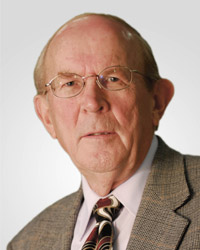
GERMANY - Digital Debit Card for Asylum Seekers
The federal government is planning to amend Germany’s Asylum Seekers’ Benefits Act to allow local authorities to pay asylum-seekers state benefits through payment cards, rather than cash or vouchers.
Since asylum-seekers do not yet have residency status in Germany, they can’t have their own bank account and cannot legally work until they have been in the country for at least three months.
Up until now, local authorities have paid asylum-seekers a monthly state benefit of around €400—€500 ($430—$540) in cash or in vouchers.
The official purpose of the payment card, as spelled out in a meeting of the 16 heads of the state governments, is “reducing the administrative burden on local authorities, preventing the possibility of transferring money from state support to countries of origin and thus combating the inhumane crime of people smuggling.”
Some local authorities have had pilot projects in place for several months, and have reported that it reduces the bureaucratic and security concerns associated with having large amounts of cash available at the start of every month. Some have also reported that the card helps ease social tensions, and helps migrant families to budget better.
Less officially, politicians hope the card will discourage uncontrolled migration, and so win back voters from the far-right.
“The current studies suggest that social benefits, or the manner in which they are paid, have no influence on migration in and of themselves,” Lena Frerichs, legal expert at the Gesellschaft for Freiheitsrechte (Society for Freedom Rights—GFF), told DW. She says research suggests that most migrants only send money back home when they have enough to spare: In other words, when they are working and earning money.
-www.dw.com, 5 March 2024
Arno's Commentary
A Google search reveals that in 2022, 108.4 million people were forcibly displaced, thus refugees. The two top countries of origin are Syria and Afghanistan. According to Wikipedia, the United States officially intervened in the Syrian civil war in September of 2014, with the stated aim of fighting the Islamic State. It was in 2001 when the US went to Afghanistan in response to the 11 September 2001 Al-Qaeda terrorist attack. Europe is geographically much closer to these areas than the US; subsequently, the desire of those refugees to land in Europe.
Asylum seekers must be subjected to rigorous tests to determine if asylum will be granted; otherwise, they are returned to their country of origin. WorldPopulationReview.com lists the percentage of foreign-born residents in the following countries. The OECD lists the top five countries with the highest percentage of foreign-born residents: 1) Luxembourg 47.3%, 2) Australia 29.9%, 3) Switzerland 29.7%, 4) Germany 16.1%, 5) USA 13.6%.
So, contrary to popular belief, it is not a major issue in America. What the statistics do not list are Middle Eastern countries; here the numbers are significantly higher. The top five countries are: 1) Quatar 70.4%, 2) UAE 68.2%, 3) Kuwait 49.3%, 4) Jordan 38.6%.
The issue in Germany is monthly benefits for asylum seekers.
It seems the bottom line is reduction of immigrants, legal or illegal. But that, from all available information and statistics, is all but impossible.
An article in The Jerusalem Post in early 2023 reported that some 25,000 illegal immigrants are in Israel, a country with the most secure borders, and doubtless the best intelligence services. Thus, we can say with assurance: immigration issues will continue, and increase as time goes by. The other side of the story is that technologically advanced countries, particularly in Europe, are in urgent need of qualified foreign workers.
In summary, experience has shown that after one, two, or three generations, the so-called newcomers have been integrated into the nation and are hard-working, tax-paying residents or citizens. We read this admonition in the last book of the Old Testament: “And I will come near to you to judgment; and I will be a swift witness against the sorcerers, and against the adulterers, and against false swearers, and against those that oppress the hireling in his wages, the widow, and the fatherless, and that turn aside the stranger from his right, and fear not me, saith the Lord of hosts” (Malachi 3:5).



